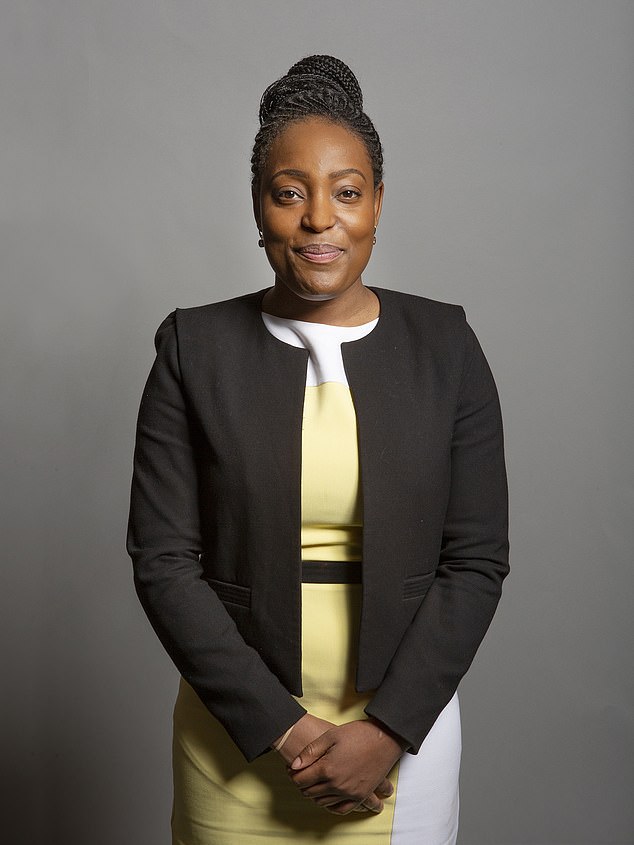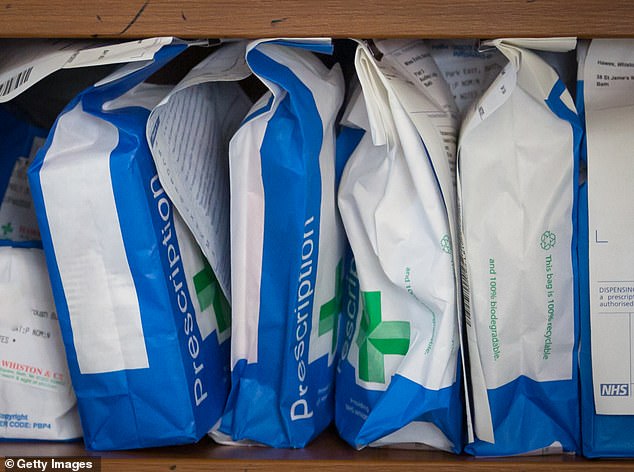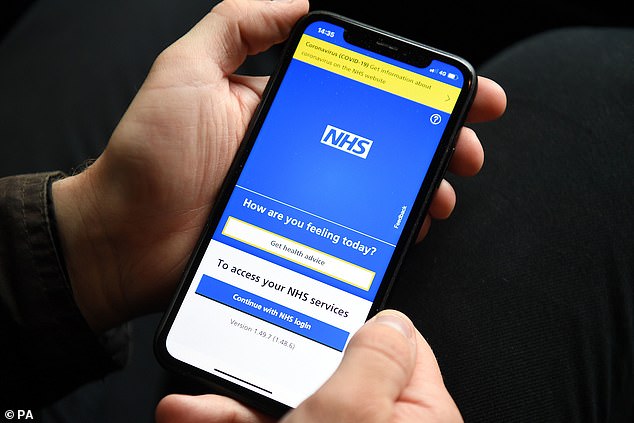How new online pharmacies, backed by the NHS, could put your local pharmacist out of business
A rise in overhead costs and a shortfall in the amount they receive for dispensing medicines is causing a record number of pharmacies to close their doors.
But a Good Health survey has revealed another threat: the ever-growing number of online pharmacies.
These are supposed to provide services nationally, but some now only deliver to specific areas, putting local brick-and-mortar pharmacies out of business.
While the number of community pharmacies fell by 673 between 2015 and 2023, the number of distance selling pharmacies, which are online pharmacies that contract with the NHS to issue prescriptions, increased by 247 over the same period.
Distance selling pharmacies, or DSPs, which do not offer the opportunity to meet patients and benefit from lower overhead costs, should not target areas where physical chemists are already active.
A rise in overhead costs and a shortfall in the amount they receive for dispensing medicines means a record number of pharmacies are closing their doors

Last week, the role of pharmacists was further expanded under the NHS-backed Pharmacy First programme
This is to try to protect brick-and-mortar pharmacies – which are increasingly being relied on to offer more services, putting pressure on both hospitals and GPs.
For example, last week the role of pharmacists was further expanded under the NHS-backed Pharmacy First programme.
Pharmacists can now treat conditions such as earaches, skin infections, urinary tract infections and shingles – and can dispense antibiotics.
But worryingly, a Good Health study found that 155 local pharmacies closed their doors between 2015 and 2023, while there were now 11 online pharmacies operating in the area.
DSPs advertise online, but can also be found on the NHS app, encouraging patients to register with them as their preferred provider – as they are increasingly doing.
NHS data shows that 53 million prescription items were issued by DSPs in England in 2021, up from 29 million in 2019.
Although DSPs are meant to provide medicines to anyone, anywhere in the country, as part of their NHS contract, our research found that many were refusing to help patients outside their local area.
When a reporter approached a sample of eleven DSPs, eight of them said they only supplied locally.
And while brick-and-mortar pharmacies can only open in areas of need, DSPs are not required to meet this requirement.
Some fear this means the situation will only get worse as online pharmacies open wherever they want.
Taiwo Owatemi MP, of the All-Party Pharmacy Group, says it is the patients who will lose.
She told Good Health: ‘The danger is that unfair competition will damage patient care because community pharmacies cannot compete and have to close.

Taiwo Owatemi MP, of the All-Party Pharmacy Group, says it is the patients who will lose

The Company Chemists’ Association (CCA) has accused NHS England of ‘turning a blind eye’ to the threat posed by DSPs
“This is damaging face-to-face healthcare in that area. This will only get worse if there is unfair market competition between brick-and-mortar pharmacies and DSPs.”
She wants the NHS to crack down on DSPs who focus on local areas and refuse to serve patients across the country, and suspend new DSP contracts until the situation is dealt with.
The Company Chemists’ Association (CCA), which represents chains such as Lloyds Pharmacy and Boots, has accused NHS England of ‘turning a blind eye’ to the threat posed by DSPs.
Malcolm Harrison, CCA’s chief executive, said: ‘Pharmacies in England are closing at an alarming rate, almost 1,000 since 2015, and these rogue companies are making matters worse.
‘In addition, patients will no longer have access to the services, care and advice of their local community pharmacy if it is put out of business by these traders.’
All pharmacies are paid to dispense NHS prescriptions and are reimbursed a fixed price for the medicines they purchase and dispense.
As part of our Save Our Local Pharmacies campaign, Good Health has reported on how pharmacies are in some cases being reimbursed for less than the cost of medicines because the payment system has not been overhauled since 2015. We notice that their overhead costs are increasing.
They are increasingly finding themselves on the front line as the NHS looks to ease pressure on GPs and hospitals, and are being promoted as the first point of contact for treatment of minor ailments.
Janet Morrison of Community Pharmacy England said local pharmacies are ‘under significant pressure’ and some are ‘reporting record losses’.
She added that while initiatives like Pharmacy First “will provide some additional funding, this funding is specifically for pharmacy first services.”
‘This does not address the underlying financing gap in the sector. Finding the capacity to deliver these initiatives will be a real challenge,” said Janet Morrison.
And it’s not just community pharmacies that are at risk. Last year, 244 supermarket pharmacies were expected to close, while the NHS budget for the sector had been frozen since 2017-18.

Distance selling pharmacies, or DSPs, which do not offer the opportunity to meet patients and benefit from lower overhead costs, should not focus on areas where physical chemists are already active
Meanwhile, an investigation has found that DSPs, which are regulated by the General Pharmaceutical Council, are breaching a central part of their contract.
They aim to deliver medicines anywhere in England for free by post or courier, so they don’t compete unfairly with bricks-and-mortar pharmacies with much higher overhead costs.
NHS data analyzed by the CCA shows that 72 percent of DSPs deliver more than half of prescriptions within ten miles of their warehouses. And only 16 percent of DSPs receive prescriptions from more than one zip code area.
The eleven distance selling pharmacies approached by Good Health were chosen because NHS data showed that almost all of their prescriptions were dispensed within one postcode.
Malcolm Harrison said the CCA believed DSPs were ‘targeting the population in that area to boost the business’.
The analysis, revealed exclusively to Good Health, found that 155 physical pharmacies have closed within a ten-mile radius of the eleven DSPs since 2015, although a direct correlation cannot be proven.
One DSP, Docpharma, based in Cheetham Hill, Manchester, issued 80,606 prescription items in 2022, but NHS data showed all prescriptions came from within a ten-mile radius of the registered address.
On the official NHS app, where people can choose their designated pharmacy, Docpharma says: ‘We offer free prescription delivery within three miles of M8 Manchester.’ This is despite the NHS insisting that deliveries should be free nationally.

The official NHS app allows people to choose their designated pharmacy
When a reporter called Docpharma to ask if they could supply a patient in London, the assistant said ‘no’ and said it was ‘we were only in the Manchester area’.
The CCA says that 56 pharmacies within a ten-mile radius of Docpharma have closed since 2015.
Another distance selling pharmacy, Advantage, based in Leeds, has rejected an online application from an out-of-town patient. The automated response stated that ‘online prescribing is not currently possible for your industry’.
This is despite the fact that the DSP’s website states that Advantage is ‘focused on offering a free collection and delivery service for prescriptions anywhere in England’.
According to NHS data, the DPS issued 40,240 prescription items in 2022, and 98 percent of those came from within a ten-mile radius.
The CCA estimates that 30 local pharmacies have closed within a ten-mile radius of Advantage since 2015.
The supply of physical pharmacies is especially important for the elderly, people without access to the internet and people without their own transport.

The CCA estimates that 30 local pharmacies have closed within a ten-mile radius of Advantage since 2015.
Malcolm Harrison said the CCA had repeatedly raised the issue with NHS managers but claimed ‘no action had been taken’.
A spokesperson for the General Pharmaceutical Council said: ‘Our targeted inspections of pharmacies have resulted in the identification of serious patient safety concerns associated with some online pharmacies and online prescribing services.’
The council added that 69 “enforcement actions have been taken against “online activity” since April 2019 – although this was related to issues such as the “inappropriate prescribing, dispensing and dispensing of prescription medicines.”
An NHS spokesperson said: ‘Distance selling pharmacies are obliged to supply medicines to anyone who requests them, anywhere in England, and if there is evidence that a company is failing to do so, this will be investigated by the local NHS and appropriate action will be taken. .’
Docpharma manager Shaheen Chaudry said: “We are committed to complying with all regulations relating to our distance selling contract.
‘We will make all staff and locums aware of the pharmacy’s obligations in providing national coverage and will also review our promotional material to correct any errors.’
Advantage did not respond to a request for comment.
